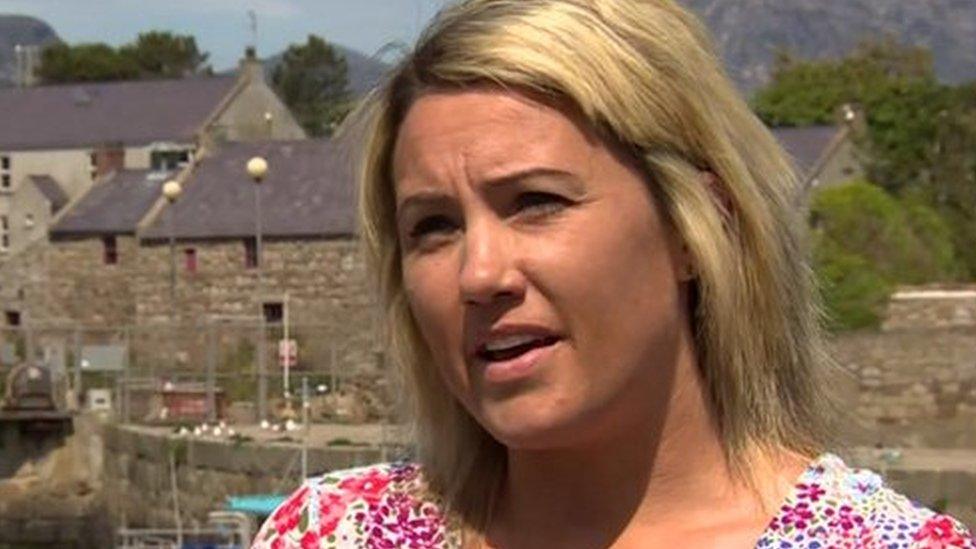Deepfakes to become criminal offence in NI 'sooner rather than later'
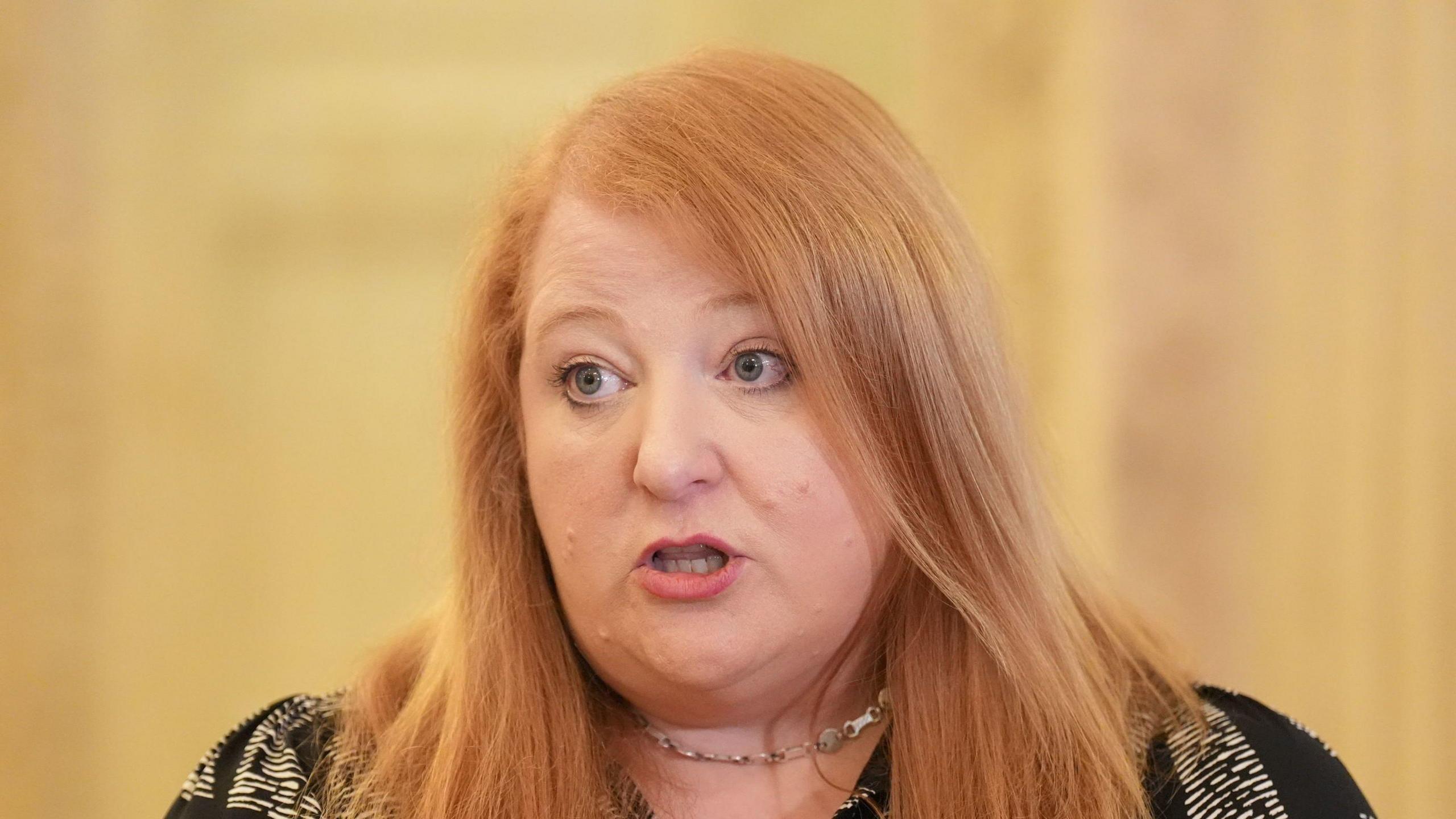
Naomi Long says the creation of new offences would help eradicate violence against women and girls
- Published
The Justice Minister has said she wants the creation and sharing of false pornographic images and videos - known as deepfakes - to become a criminal offence in Northern Ireland.
A deepfake is an image or video that has been digitally altered with the help of artificial intelligence to replace the face of one person with the face of another.
There is currently no legislation in Northern Ireland to protect adults from the practice and a public consultation has been launched into criminalisation.
Minister Naomi Long said deepfakes are abhorrent and her department was aiming to crack down on it, as part of the new justice bill.
'Trigger conversation'
Plans to tackle it in England and Wales were announced by the government , externalearlier in 2025.
Long described how victims reported feeling embarrassed, humiliated, violated and unsafe.
"They can suffer from anxiety and post-traumatic stress disorder, and some people even consider suicide because of their experiences," she added.
She said her department was working "at pace" on the issue because she wants deepfakes to be included in the justice bill which is currently being scrutinised by the Stormont justice committee.
"Thankfully the committee were open to me amending the bill at consideration stage to include deepfakes," she said.
"So when the Justice Committee complete their consideration, that will be the point where we are able to get this through the assembly, and hopefully it will become law.
"So sooner rather than later, in terms of legislative process."
Long also said she wanted to "trigger a conversation in society" about why practices like these are not acceptable.
"I see the deep fakes as an area where we can actually now start to explore the underlying attitudes, the harm that it causes, and hopefully start to change attitudes in wider society.
"Because ultimately, whilst I can bring forward offences that will criminalise the behaviour, I do not want there to be more victims of these offences."
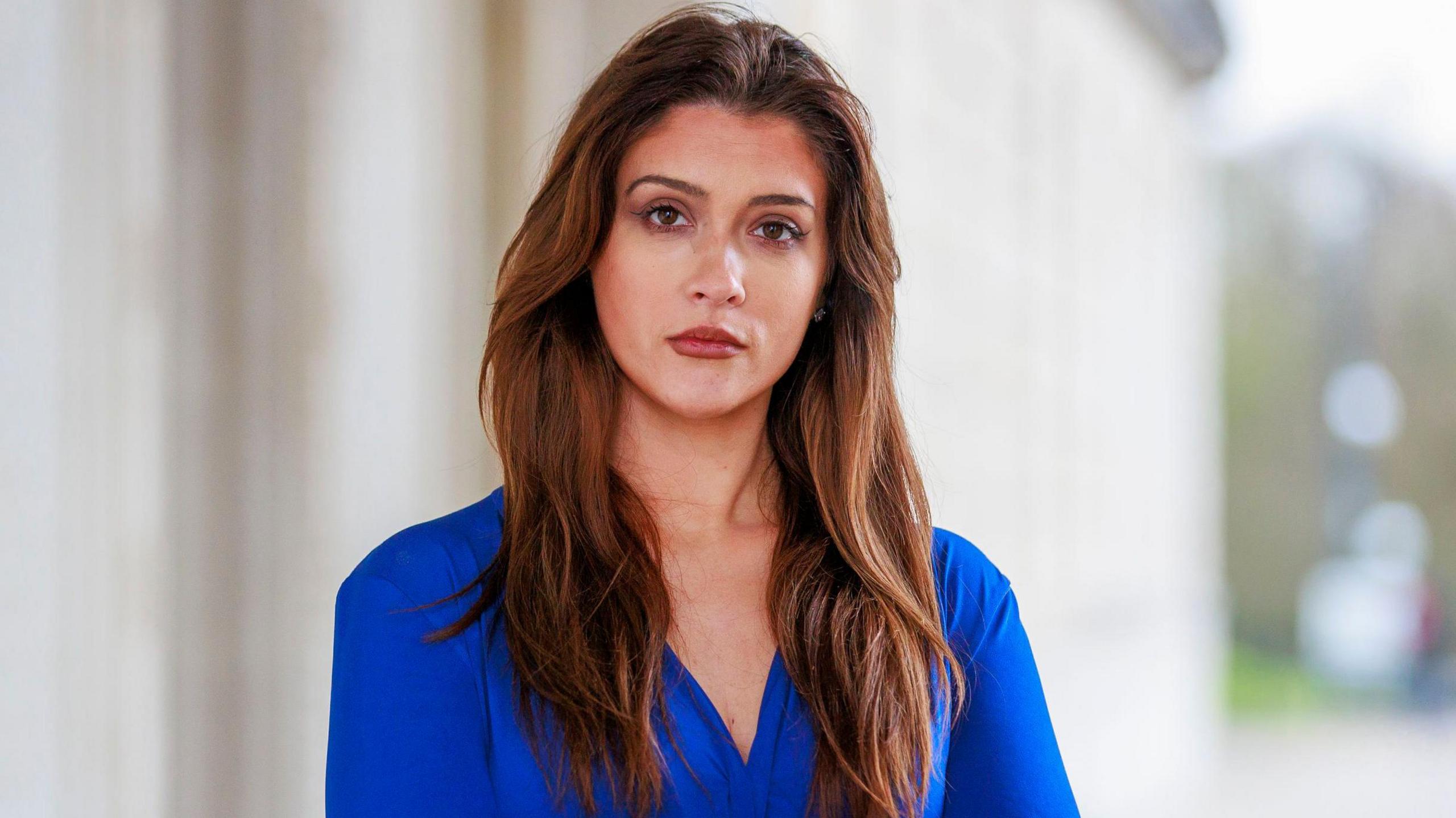
Cara Hunter was targeted in a deepfake video in the run-up to the Stormont election in 2022
'Fake images can ruin lives'
East Londonderry MLA Cara Hunter, who has campaigned for a change in the law since she was targeted in a deepfake video, said it can "ruin lives".
Her face was digitally superimposed on to the face of another person.
The video was circulated widely on WhatsApp and social media in the run up to the 2022 Stormont elections but the person responsible was never identified.
She said: "Victims often have to put up with images being shared widely online and this is an incredibly dehumanising and humiliating experience that can impact jobs, relationships and day-to-day life, leading to mental and other health problems.
"I strongly welcome this public consultation that must lead to serious consequences for anyone involved in the creation and sharing of sexual deepfake images."
Hunter stressed the need for victim-centred legislation and urged the public to respond to the consultation.
She said the consultation was a "strong first step" but that she "wished it happened some time ago".
"The level of urgency around AI harm, just speaking from my own experience, I think we weren't seeing the same energy and urgency it requires," Hunter said.
She added that "there can never be too much investment when it comes to cyber crime" and that any law should be imposed retrospectively and be tried in a Crown Court.
"We need to be firm and tough with laws around deepfake creation and I think that perpetrators need to pay a very strong price."
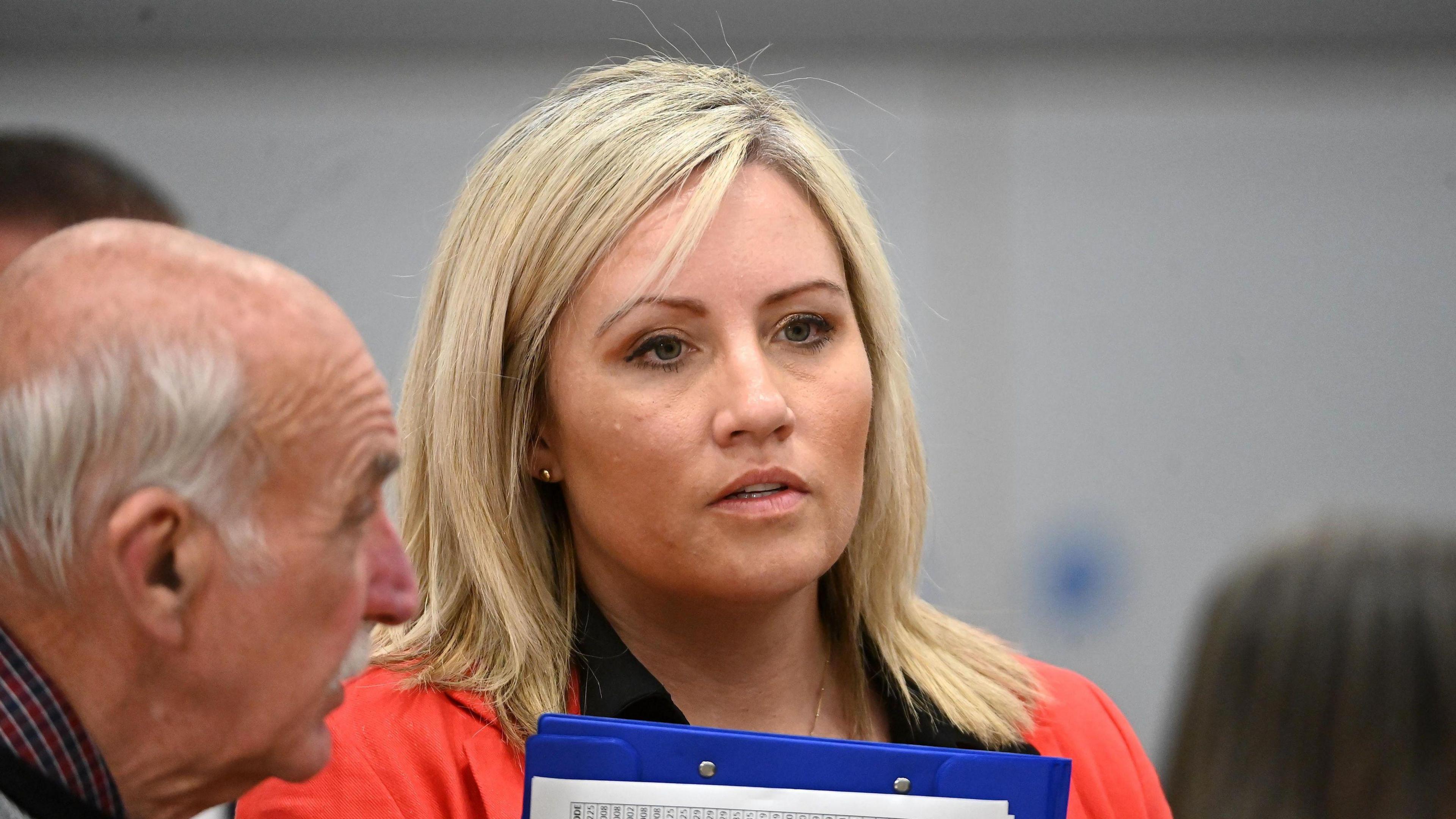
DUP MLA Diane Forsythe also welcomed the consultation
DUP MLA Diane Forsythe welcomed the consultation.
She was also targeted in the run-up to the 2022 Assembly election, when a defamatory message about her was circulated online.
"For too long, the law has lagged behind technological advances that are being exploited by those who wish to harass, intimidate or damage the reputation of others," she said.
"This activity is deeply harmful, often targeting women and young people, and can have devastating emotional and psychological consequences for victims."
'Just another weapon'
Sonya McMullan from Women's Aid NI also welcomed the public consultation but said more work needed to be done when it comes to technology companies who are being "allowed to facilitate" the creation of deepfakes.
"This is just another weapon that can be utilised by perpetrators to further violate their victim," she told BBC Radio Ulster's Good Morning Ulster programme.
"The impact that it can have – the trauma, and people know the damage it can do to individuals.
"And because people don't know what's real and what's not real anymore – once it's out there it's out there."
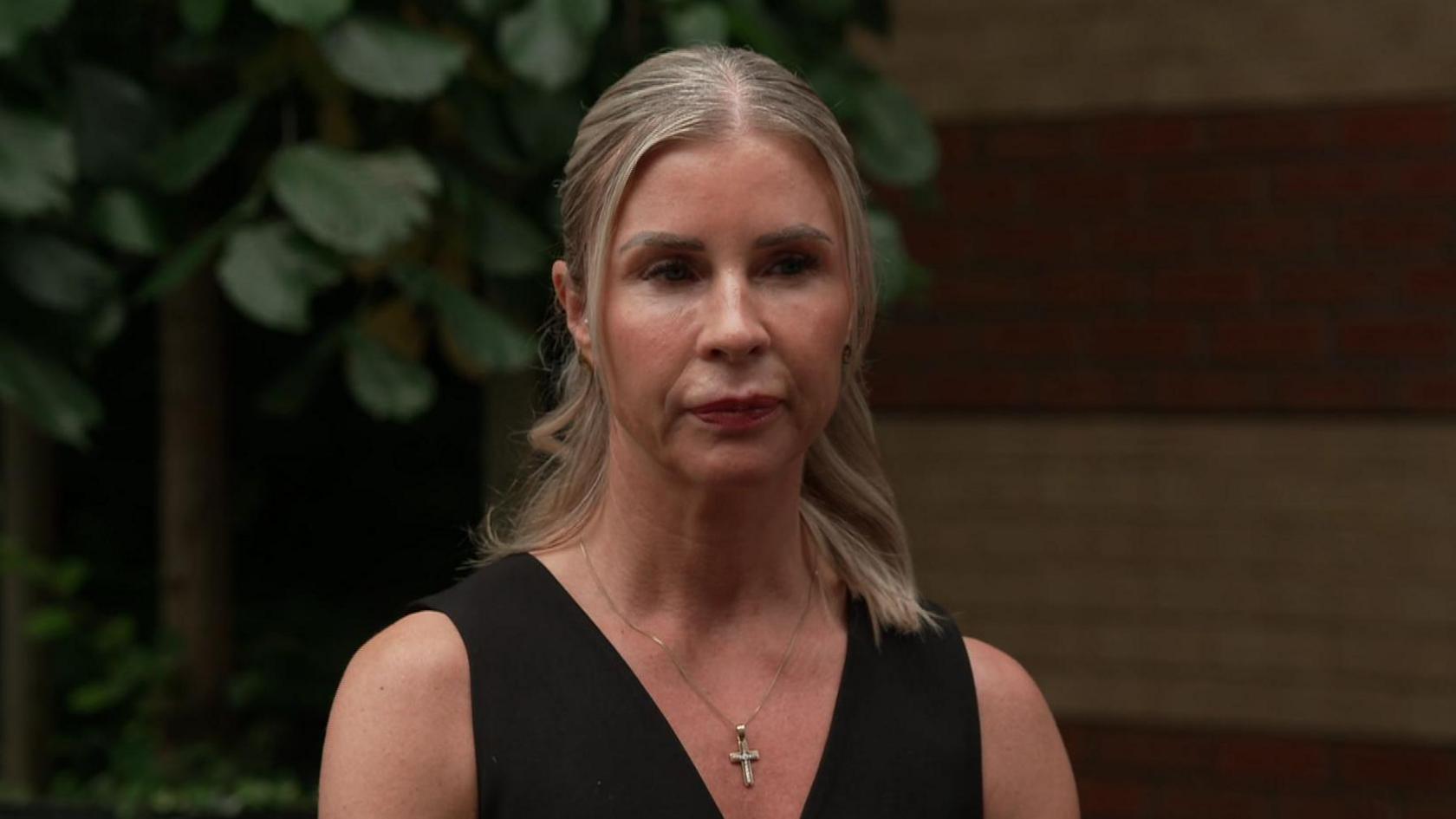
Joanne Barnes is the CEO of the sexual abuse counselling service Nexus
'Non-contact sexual abuse growing'
Joanne Barnes, CEO of the sexual abuse counselling service Nexus, said it was "really important" to get this law in place quickly.
"We're seeing the incidences of non-contact sexual abuse growing across our population and society and deepfakes are one such example of that," Ms Barnes said.
She added that deepfakes can be "traumatising" for victims and creates "shame" and "blame".
"If we don't have the offence there we can't prosecute against it so we need to see the legislation in place.
"We need to move to criminalisation," Ms Barnes said.
What is the deepfake consultation?
The consultation will run until 6 October.
The justice department said it dealt with a range of factors, including motivation and whether the proposed offence should be dealt with in the crown or magistrates' courts.
It said other elements of the consultation included the sentences that should be available to judges should the creation and sharing of a sexually explicit deepfake image become a criminal offence.
Long added the creation of new offences would "add to a suite of measures already in place to protect people from intolerable sexually motivated behaviours" and "eradicate violence against women and girls".
She said the department was "conscious of" the fact that the complexities of crimes being investigated by the PSNI are increasing.
"It's why it's so important that, first of all, we keep pace with the offending behaviour but also that we get the resources we need to ensure that we can bring those offenders to justice."
- Published14 July
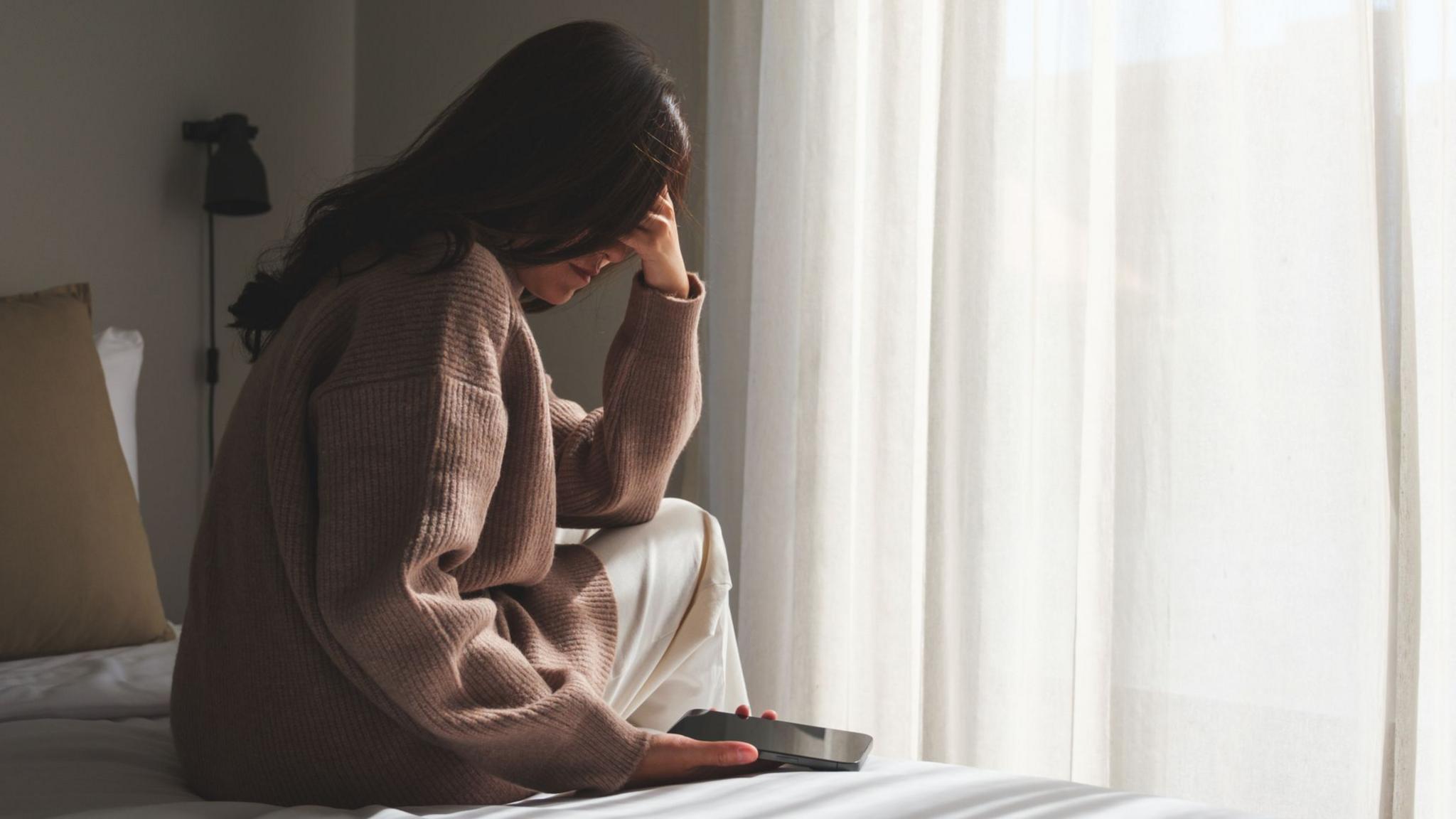
- Published16 April 2024

- Published23 January
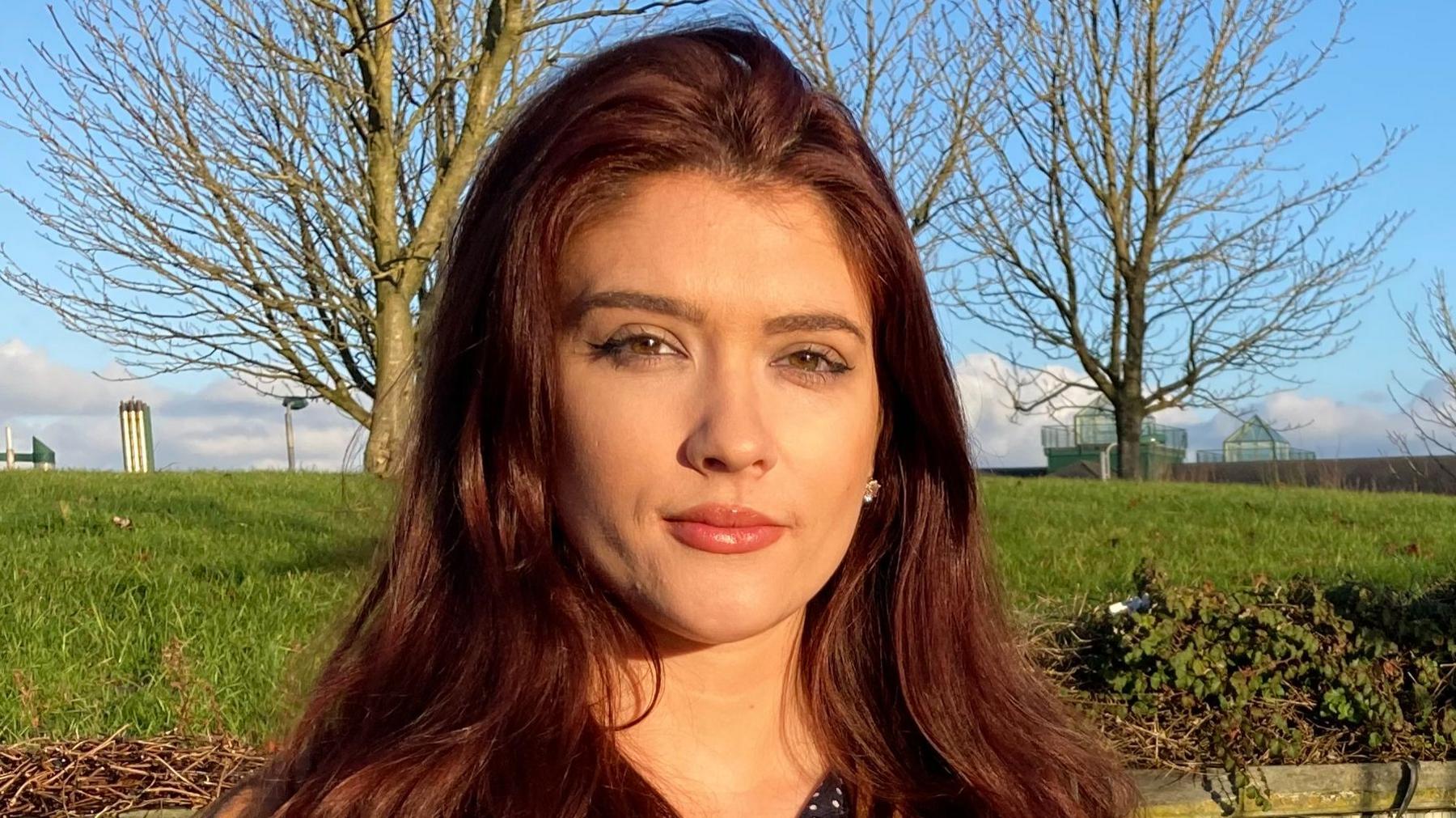
- Published3 May 2022
